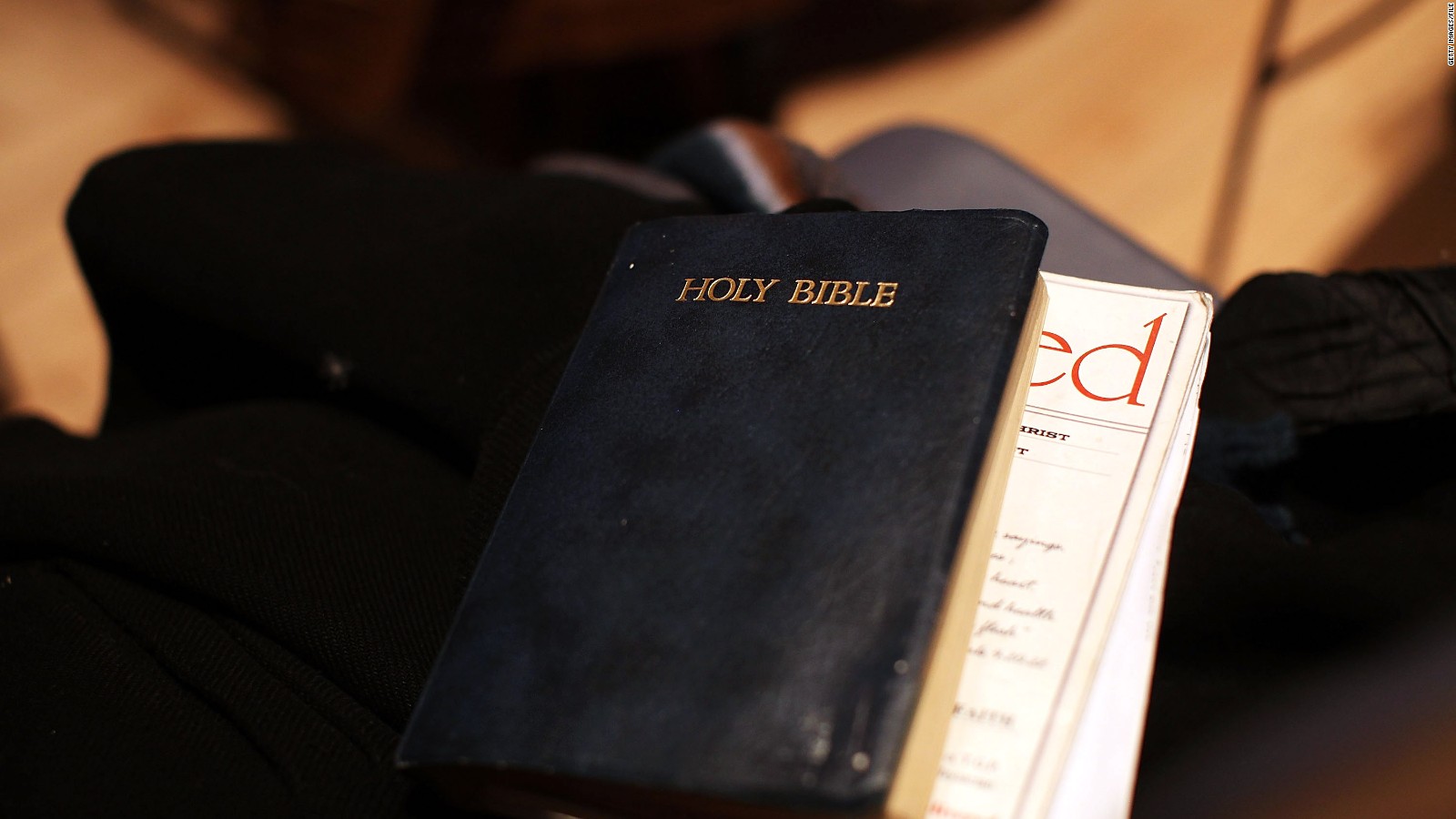A Catholic reads the Bible, Week 2: A flood of first impressions

Laura Bernardini finds some surprises in the Book of Genesis.
Story highlights
- Laura Bernardini, a lifelong Catholic, has decided to finally read the Bible from cover to cover. This is week two
- Some surprises: Two creation stories, Seth, and what on Earth are the "men of heaven"?
Laura Bernardini is director of coverage in CNN's Washington. bureau. The views expressed in this column belong to Bernardini.
(CNN)This is week two of an ongoing series: A Catholic Reads the Bible This week covers the Book of Genesis, chapters 1-11.
A week ago, I was worried I wouldn't have anything to write about. Now, I don't even know where to begin.
The first step was choosing a Bible. I went with the version that I received for winning the religion award at Rice Memorial High School in South Burlington, Vermont. As I mentioned in the first installment of this series, I'm a lifelong Catholic who finally plans to read the Bible from cover to cover. The Bible I'm reading is "The Deluxe Catholic Bible," published in 1986 by World Bible Publishing.
After four days of reading this week, my journal is full of observations and ideas. With my crazy schedule, I found that reading at night was a perfect way to unwind and reflect. And as I started reading, I didn't want to stop. In order to fully process Scripture, I need to slow down and read the footnotes. Footnotes are my friend.
First of all, Genesis starts with two separate creation narratives. How did I not know this?
The first chapter is the seven days story with God creating the Earth. In the second chapter the Earth is again created and man is formed out of clay. Talking with a CNN colleague, I mentioned how there seems to be fascination in Genesis with dirt and clay. My colleague pointed out that even Adam's name is a play on the Hebrew word "adama," meaning ground.
It struck me that the whole first two chapters have everything to do with the Earth and man's place in it, a struggle that we can relate to even now. From the creation of the Garden of Eden to the fall and the banishment, the bounty of the land and the access to it seems to be the area of highest concern.
My greatest surprise, though, came when I read about Seth.
Seth? Who? I started asking people if they had remembered the story of Seth. My unscientific poll of friends is that 9 out 10 people I asked had no idea who he was.
Turns out, Seth is the forgotten son of Adam and Eve who is born after Cain kills Abel. Adam fathered Seth at 130 years old. Yes, we are getting into the part of the Bible with fantastical life spans that allow for the transition from the stories of Adam to Abraham. (Again, thank you footnotes).
Unfortunately, we don't learn much more about Seth. When he is mentioned, it's about his descendants. But, because this was my first biblical surprise, I will never forget him. Thank you, Seth.
As a woman, though I was waiting to read more about the role of women. Did you know that Eve is the first person named in the Bible? (I expected Adam, but he is called "man" in the first references.)
Moving on, we have these tales about the "sons of heaven" seeing Earth's beautiful women and taking them as wives. Um? What? I had never heard that one before.
I had to read that passage a few times and, again, the footnotes helped. They say the story is an inclusion from mythology. But why? My first hunch is that it might have been a way to take a story that everyone knew at the time and make it part of a new narrative. Familiarity would lead to followers.
Of course, many Christians don't cite the "sons of heaven" today because it would take too much time to explain. Maybe that's why I don't ever recall hearing this passage read at Mass.
With that in mind, I read about Noah, descendent of Seth, with a different perspective, too. I have never believed there was an ark. I never thought that God dictated the dimensions of the boat to save the animals two by two.
It is a story told to make you realize the power of God. The explanation for the flood is that man had become more and more wicked, but I didn't expect, though, that God would "regret" creating man. Ouch! It really makes the reader want to stay on God's good side.
This "wickedness" of mankind and the "regret" from God sounds as if God made a mistake and decides to fix it, to start over, in essence. "Never again will I doom the Earth because of man, since the desires of man are evil from the start. ..."
That phrase reminded me of my dad's favorite saying, "To err is human but to forgive is divine," which comes from a Pope, but not a Catholic holy man. But enough about that, I have to get back to reading.

No comments:
Post a Comment